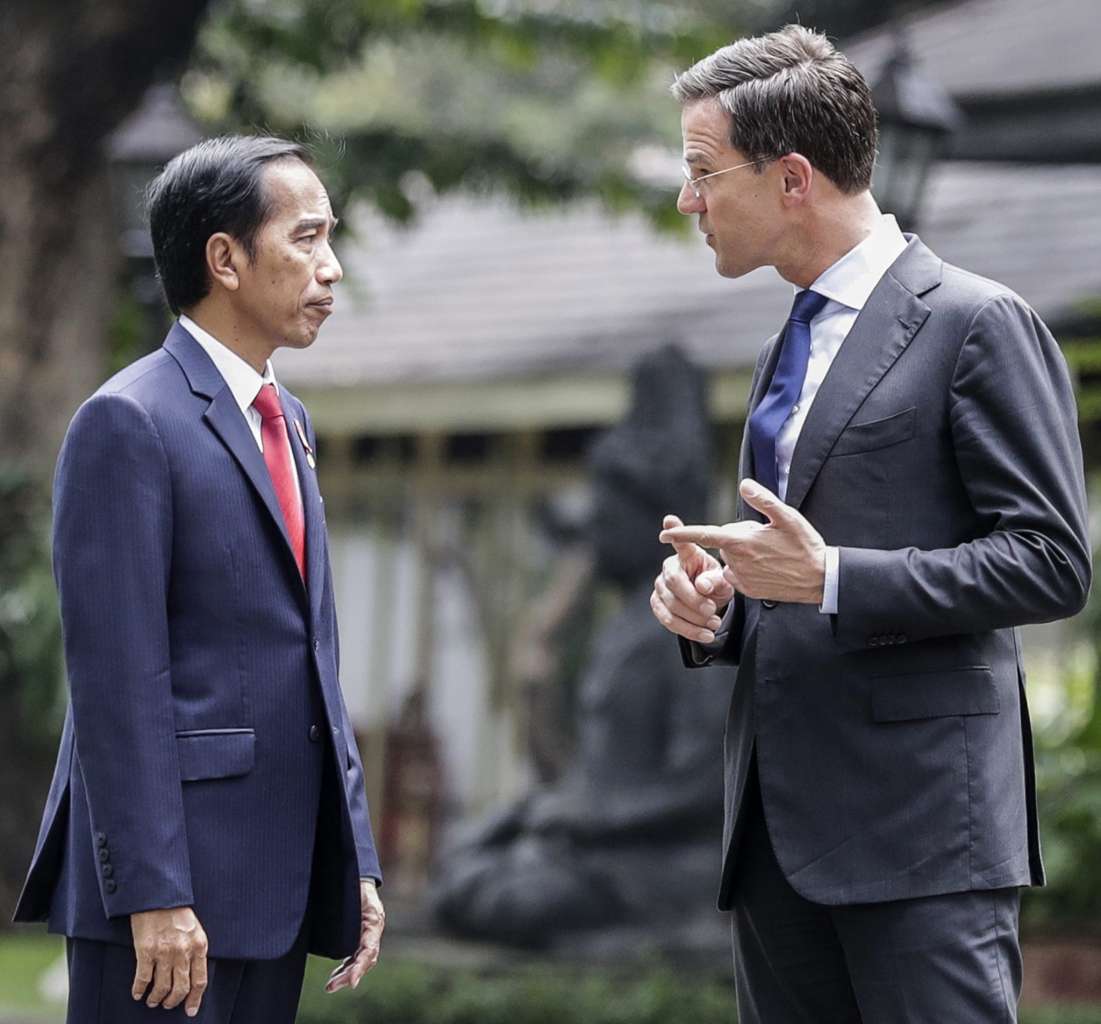Dutch unveil study into Indonesia colonial conflict
Sign up now: Get ST's newsletters delivered to your inbox

Dutch Prime Minister Mark Rutte (right) talks to Indonesia's President Joko Widodo during a visit to Indonesia on Nov 23, 2016.
PHOTO: EPA
THE HAGUE (AFP) - The Dutch government on Friday (Dec 2 ) announced a new study into a bloody colonial conflict running up to Indonesia's independence in 1949.
"We need to dare look into the mirror of our past," Prime Minister Mark Rutte told reporters at his weekly press conference, in what marks a first-ever government-backed probe into events in the former Dutch colony four years after the end of World War II.
Thousands of Indonesians were killed by the Dutch army during the time as it fought independence fighters, with Rutte on Friday referring to it as a "dark page in history" and a "painful period for everybody".
Dutch forces at the time surrounded villages and then weeded out suspected rebels before killing them without trial.
There is, however, strong disagreement over the number that died, including during a months-long campaign on Sulawesi, a large island made up of four peninsulas with a rugged mountainous interior.
Some in Indonesia claimed that up to 40,000 were killed during the entire campaign, but historical studies have put the figure at between 3,000 to 4,000.
At least 860 men died in front of firing squads on Sulawesi, then called Celebes, mostly between December 1946 and April 1947.
The new study will now be undertaken by three Dutch institutes including the National Institute for Military History and the NIOD Institute for War, Holocaust and Genocide studies.
The Netherlands in 2013 publicly apologised for the mass killings saying it sought to "close a difficult chapter" with its former colony.
Dutch courts have also previously ruled that widows and children of those executed must be paid compensation by the Dutch government.
Long-time lawyer for the families, Liesbeth Zegveld, welcomed on Friday the latest decision, saying "we already know a lot, but it's time for the government to take its own responsibility and lend its support."
The new study follows a thesis by Dutch historian Remy Limpach, who concluded that Dutch colonial forces "used structured and extreme violence" in trying to suppress the uprising.
Japan occupied the archipelago during World War II and took apart much of the Dutch colonial state, but left when Tokyo surrendered at the end of the war in 1945.
Indonesia then declared independence but the Netherlands attempted to reassert control, sparking the war of independence.
The Netherlands finally recognised Indonesia's independence in 1949.


